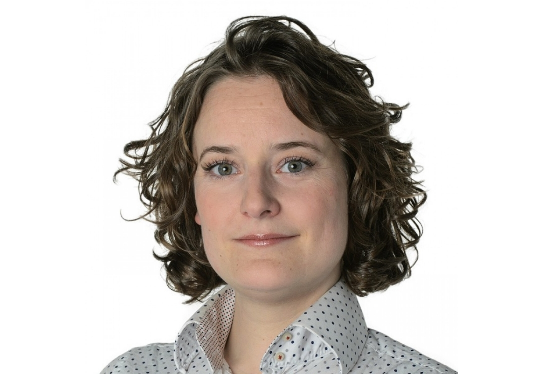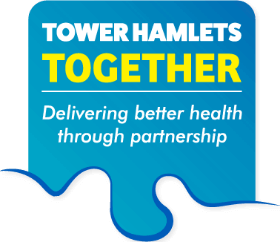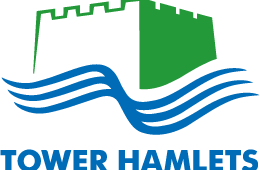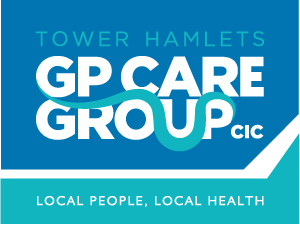Amy's Monthly Briefing - November-December 2022
The borough’s vision of a seamless health and care experience for its citizens.

At November’s Board, we signed off the Engagement Action Plan which aims to broaden and deepen user voice across all levels of THT
It’s been a whirlwind few months at Tower Hamlets Together so apologies for the delay in my regular monthly briefings! As we approach the new year, I wanted to say a huge thanks to everyone across THT for your incredible work during 2022, especially as we have navigated the transition to the new ICB arrangements and taken on the Place-based subcommittee functions. I know it continues to be an extremely difficult time across the health, care, and voluntary sectors but I am looking forward to working with you all in 2023 to weather the storms ahead and do the best we can for our community.
Outside of the Board meetings, in November and December I have chaired the engagement leads group, supported recruitment of the new Community Voice Lead (interviews in early January so watch this space!), and attended an extended meeting of the Mayor’s Partnership Executive Group to contribute to the borough’s future vision.
At November’s Board, we signed off the Engagement Action Plan which aims to broaden and deepen user voice across all levels of THT. We had an external evaluation report of the trauma-informed approach programme, which has trained 800 people and formed a core part of the pandemic response. We considered the North East London (NEL) integrated care partnership strategy and engagement plans, feeding back the need to ensure NEL’s approach is not “the same everywhere” but retains the greater historic investment in boroughs like Tower Hamlets and Hackney, where health inequalities are greatest. NEL confirmed the goal is consistent policies and outcomes across the patch, not consistent services or funding levels.
The Board also reviewed early plans for the re-tender of community health services, reflecting that previously users and carers were at the forefront of shaping the approach, including a patient leadership group participating in the procurement process, which should be replicated. Partners also wanted to see multi-disciplinary teams at the core of the model, particularly focusing on the join-up between social care and primary care, and honesty about the level of resources available and pre-Covid challenges that persist.
At December’s Board, we had a powerful user voice slot on lesbian, gay, bisexual, trans and queer experiences of health and care, led by the charity elop which runs Tower Hamlets LGBTQ+ community forum. They outlined substantial health inequalities: over half of LGBTQ+ people experience depression compared to 20% of the general population, and also face higher rates of suicide, alcohol harm, shame around body image and smoking – which is exacerbated by lack of access to appropriate services and stigma. One person’s testimony encapsulated some of the challenges: “I wouldn’t feel comfortable/safe putting my sexual orientation or trans status on a GP registration or monitoring form with my name on it due to fear or judgement or discrimination”. During Covid, health services couldn’t track the specific impact on LGBTQ+ communities, so lack of data monitoring masks inequalities. LGBTQ+ people face more social isolation, discrimination, difficulty accessing mainstream services, and often access services later.
We also discussed intersecting issues, including age e.g. older gay men who can be very isolated, reliant on chosen family, and often don’t feel safe to come out with neighbours; gender e.g. lesbian, bi and trans women who experience greater levels of discrimination, domestic and sexual violence, are 10 times less likely to have cervical screening and more likely to encounter inappropriate curiosity from health care professionals, and race, e.g. asylum seeking, Black and people of colour LGBTQ+ communities fearing or reporting experiences of hate crime. Practical recommendations for healthcare professionals from LGBTQ+ residents included: don’t assume gender identity, that everyone is heterosexual, or that people are out to everyone; make your support visible and signpost to local specialist services. The Board reflected on the urgent training need given we have one of largest LGBTQ+ communities and challenges including: the gap in support for trans people given long waits for gender identify clinics and GPs not being allowed to prescribed specialist medication; gender being changed on NHS systems meaning people are automatically removed from lists to be called into screening related to their sex assigned at birth; how to record LGBTQ+ status in an appropriate way; and how same-sex parents experience health visiting and school nursing services. We agreed to prioritise this area of inclusion for a future deep dive and will be meeting with elop soon to progress this further.
The rest of the meeting was a jam-packed agenda, including signing off the borough Winter Plan – though Board members flagged gaps including rapid social prescribing – which worked well in the pandemic to keep people away from health services – and highlighted that the system is in trouble in a way we’ve never been before, with 30-40 people waiting each morning for a bed, a poor patient experience, people waiting in acute mental health crisis for more than a day in the wrong environment (A&E) and length of stay increasing. We agreed to set up an additional time-limited Place mechanism to discuss these urgent challenges and take prompt action.
We also discussed the equity programme, which has had 14 organisations express interest and been brilliantly and rapidly mobilised by the THT team, and reviewed the Local Delivery Board report, which outlined that most of our 14 priorities across 3 workstreams are on track, with only 2 that are ‘red’ with plans in place. A fourth lifecourse group being set up for mental health and learning disability, oral health has been identified as a new major priority, procurement for a new model of homecare is on hold to factor in the new political administration’s priorities. Transitions for young adults and care coordination for complex needs both need focus and support to move forward.
Finally, NEL presented its new financial strategy and the mutual accountability framework setting out how relationships between the integrated care system, provider collaboratives and Place should best work. The financial strategy focusses on a population-focussed approach to funding and investment in prevention, early intervention, and transformation. It is proposed that non-trust budgets would be held by the Place committee – unless a service needs to be managed on a larger footprint basis – and trusts would hold and manage their own acute budgets via block payments from NEL. The Board flagged some risks and governance implications for us at Place – not least given the savings required across both the NHS and councils – requiring a further discussion along with our quarterly financial report in January. The mutual accountability framework is based on principles of subsidiarity, prevention, system-working and working with residents. Board members provided initial feedback ahead of it coming back for further review in January.








